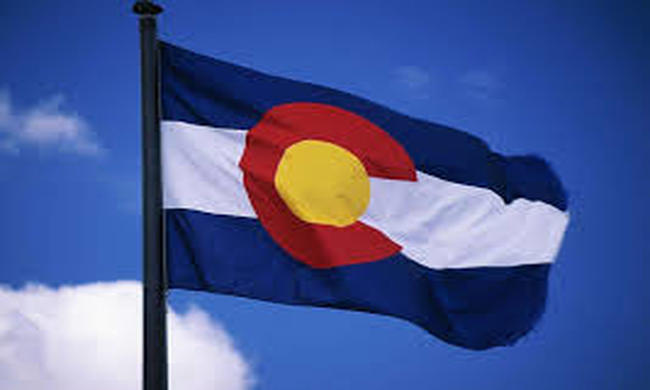This article first appeared in Complete Colorado.
Colorado’s economic prosperity is mostly a good thing, but it has a downside: Prosperity attracts newcomers ignorant of our state’s culture—and often unaware there is anything to learn.
You can see it in the great outdoors. Colorado’s environment is different from those of most other states. Colorado has greater altitudes, steeper mountains, harsher sun, drier weather, sudden weather changes, and fierce temperature drops. Our environment, while stunning, is far less forgiving than most newcomers are used to. If you get into trouble . . . . well, as we used to say in the Colorado Mountain Club, “The mountains don’t care.”
For that reason the classic “ten essentials” of hiking—extra layers, extra water, a head covering, maps, good boots, sun screen, etc.—are even more important for Colorado than for most other places.
Yet visit any of our popular hiking areas and you’ll see the trails populated by people outfitted like they were strolling in a public park in Boston: no hats, no extra layers, little water, almost no provisions of any kind.
And no other preparations either: Again and I again I’ve been stopped on the trail by people utterly confused about where they are or what direction they should go. They took to the woods without consulting maps or otherwise scouting anything in advance.
Or consider the story of Glenwood Canyon’s Hanging Lake trail: More than overcrowding forced officials to restrict access. It was also litter and vandalism.
You can also see it on the roads. Front Range freeways are loaded with drivers who seem to think they are still in New York. Or consider that the state legislature recently passed a traction law because some people didn’t know enough to equip themselves with snow tires for driving I-70 through the mountains in the winter.
Newcomers’ unpreparedness also comes in political forms. Many remain unaware of how our state’s political system differs from other states. For example, Colorado has a traditional commitment to freedom and tolerance. Colorado is also committed to popular democracy, exemplified by the initiative and referendum process and how we elect officers that in some other states are appointed.
Colorado values local control; it is one of the most decentralized states. Thanks to a provision in the state constitution, the Denver area in particular offers residents a range of choices among cities and towns. By contrast, some other states do everything they can force everyone within a metropolitan area into a single government. In addition, our state constitution allows us to vote on taxes and spending (the Taxpayer’s Bill of Rights or TABOR). The Constitution mandates regular school finance hikes and allocates the property tax burden to benefit veterans and homeowners.
You have to know this stuff in order to vote intelligently in Colorado.
Fortunately, some of us are beginning to recognize the need to educate newcomers about what it means to be a Coloradan. That was one reason I wrote an Independence Institute issue paper on our beautiful state song, “Where the Columbines Grow.” The paper not only discusses the anthem itself but focuses on its deep roots in Colorado history and values.
Similarly, the Care for Colorado campaign is targeted at familiarizing people with Colorado outdoor and environmental values.
Broader in scope is True Colorado. Only recently funded, True Colorado plans a wide public campaign consisting largely, although not solely, of videos explaining Colorado values and what it means to live here.
Wil Lemon, who with Seamas Mulvihill founded True Colorado, is a native Coloradan who has spent time in other states as well. He says he was motivated to work on newcomer education when he saw how out-of-state interests were promoting Denver’s Initiative 300. That measure would have made Denver a sanctuary for street people.
Lemon believes the initiative was a frontal attack on the Colorado values. It obviously would have undermined the value of self-reliance. But because of how it was written, he says, it also would weaken our tradition of neighborly assistance. Although voters trounced 300 by a margin of over 4-1, Lemon saw it as a warning of Colorado’s future: Unless newcomers were educated about Colorado values, we could lose many of the benefits that make this state so attractive.
When asked to list Colorado values, Lemon mentions—in addition to self-reliance and neighborly assistance—personal freedom, local control, love of the outdoors, health and fitness, and friendliness toward strangers. He further emphasizes the state’s tradition of entrepreneurship, made possible by fairly low tax and regulatory burdens.
Unless we protect those values, he says, we will suffer. For example, losing our interest in health and fitness may result in a much larger childhood obesity problem. Lose the value and you lose the benefit.
The state’s rural citizens are particularly concerned about state trends, and True Colorado has begun to work with the state’s farming, ranching, and resource communities, among other constituencies.
Coloradans have a tradition of welcoming newcomers—as they welcomed me when I first moved here 42 years ago. But welcoming isn’t enough. We must help newcomers understand how to preserve the things that make Colorado such a great place to live. Projects like True Colorado promise to do just that.








